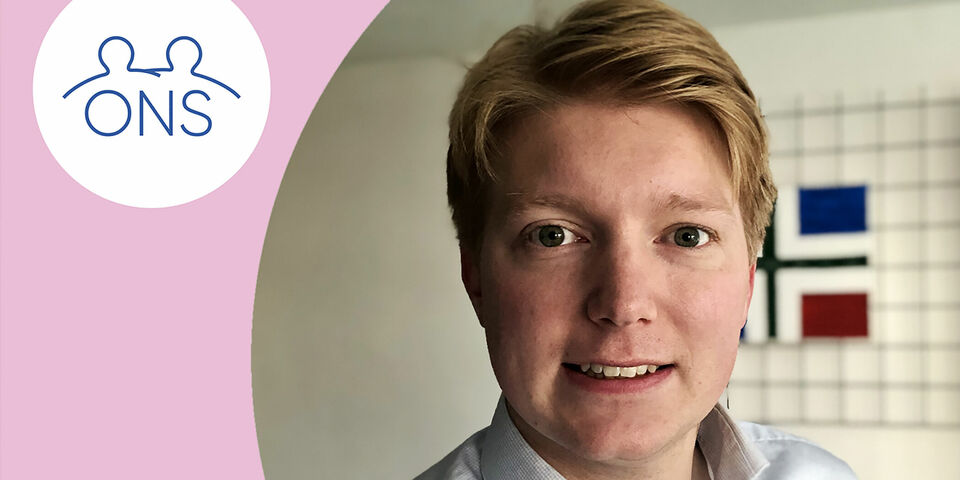New student faction ONS in University Council
At the upcoming University Council elections students will be able to vote for no fewer than three student factions, as the electoral list released November 3rd by TU/e unexpectedly revealed. Like Groep-één and DAS, the ONS party is also keen to compete for some of the nine student seats. “We think we are a good addition”, says election candidate Rik Lubbers.
The name of the newest of TU/e's student factions is ONS, “because it's about all of us”, says Rik Lubbers, student Mechanical Engineering and number 1 on the ONS list. [in Dutch ONS means 'us', ed.] Why not US? “Because we also think Dutch identity is important. The campus is all the richer for having international students at TU/e, but sharing our culture with them is something we shouldn't forget to do.” The co-founder of ONS appears to be someone who likes to speak up. “I enjoy debating and testing my opinions against other people's. It can change my views on a matter.”
Lubbers also likes the idea of a University Council that is closer to the whole student body and so last summer he joined forces with Built Environment student Viktor van ’t Klooster and others to found ONS. Lubbers knows the University Council well because for the past three years he has held a seat on the department council at Mechanical Engineering.
Long-term vision
“We realized that DAS and Groep-één have a limited following. DAS mainly represents students who are actively involved with the Compositum federation and the sports associations Don Quishoot and Fellenoord. Groep-één has ties with students active in the study associations. But there are so many more students at TU/e. They are the people we want to represent.”
And ONS is keen to stand not only for today's students, but also for the students of successive cohorts. “In our opinion, Groep-één and DAS both lack a long-term vision and their main focus is troubleshooting,” says Lubbers, his party's top candidate for election.
The ONS program – also available in English – has a three-pronged focus on welfare, transparency and the long term. “We want to give future students an accessible campus. Where they can study, meet one another and develop themselves socially.” Lubbers is not yet ready to release the detailed plans ONS thinks will achieve its goals. “The election manifesto has been written and this coming Monday, once the exam period is over, we will announce it to everyone who is interested.”
Surprise
ONS ‘came out of the blue’ on November 3rd for tactical reasons. “We want to be free in how we campaign. Our teams aren't yet the size of DAS and Groep-één's so we are keen to use the element of surprise. It works in our favor if rumors of a new party spark people's curiosity.”
A student faction's job, believes Lubbers, is to monitor the Executive Board and provide good input for TU/e policy. “We can work with other parties to do that; it needn't pit us against each other.” An initial meeting with the chair of DAS, Joëlle Bink, and Koen de Nooij of Groep-één, has already been held.
Debate on the University Council could be more critical, thinks the ONS election candidate. “Take the PER (Program and Exam Regulations, ed.), it's a tedious topic, but oh so important. It is actually the contract the student signs with their university. I've noticed that as an individual student of as a department council it is very difficult to change it in any way. Every year feedback is asked for, but TU/e does remarkably little with it. The PER is a ponderous and bureaucratic mechanism. Having a new wind blast through it, raising critical questions of it would only be a good thing. We will be doing that.”
Election candidate Lubbers knows TU/e well. His student enrolment is now in its seventh year and he is or has been active at Thêta, Totelos, De Club, Isis and Recruitment Days - like many of the eight students with whom he has founded ONS and who share his passion for University Council work. “We are hoping for a high turnout at the elections and for now three seats would be enough.”


Discussion